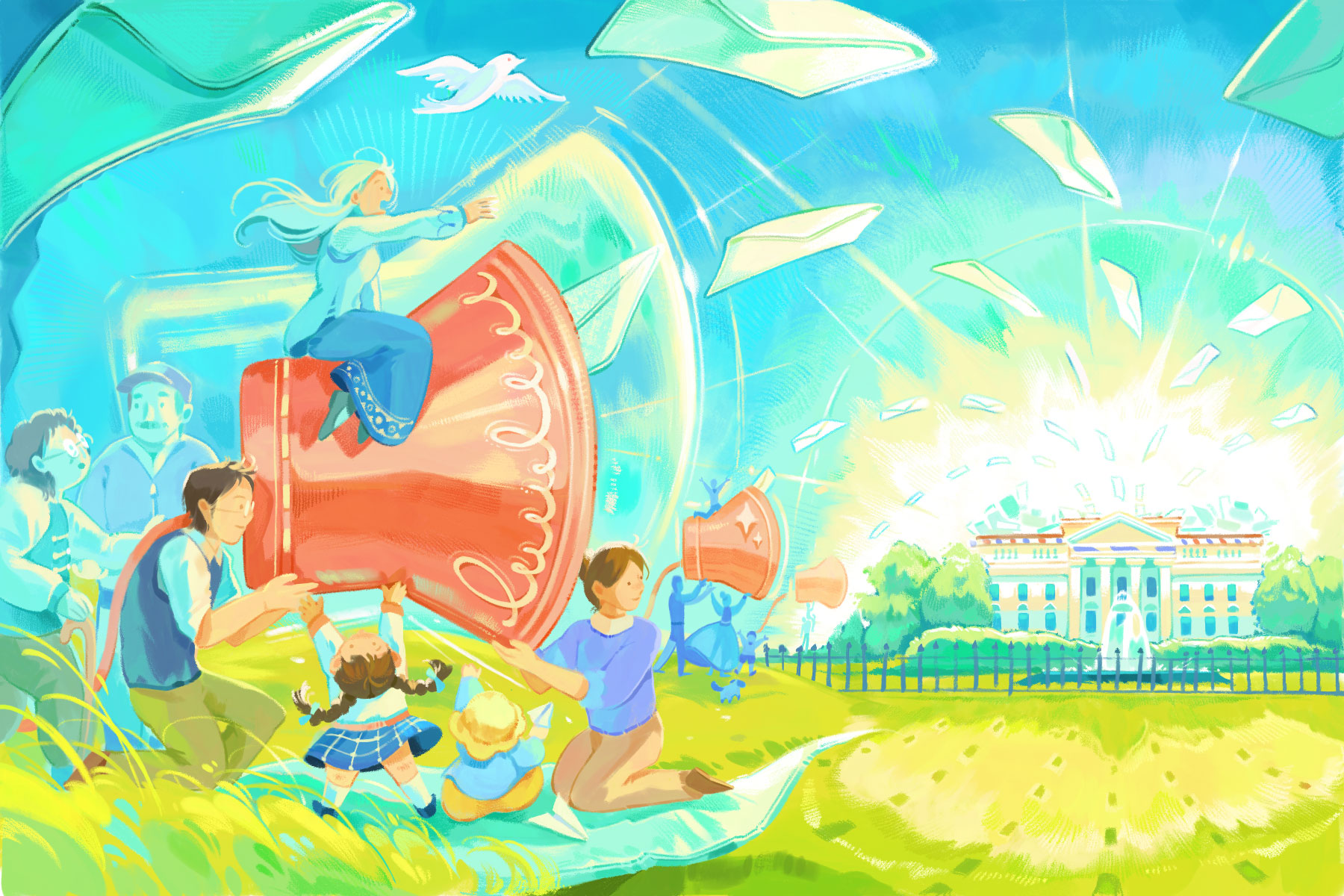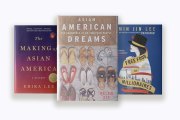This AAPI Heritage Month, we’re telling the untold stories of women, women of color and LGBTQ+ people. Subscribe to our daily newsletter.
The term Asian-American/Pacific Island (AAPI) – a demographic category that covers people from the subcontinent, Southeast Asia, East Asia and the islands that dot the Pacific Rim – has been around for decades. And in a rapidly diversifying nation, it’s carrying the weight of wildly different cultures and experiences.
Despite the breadth of the term, this group of people is still limited in its influence over American politics. AAPI people make up 6 percent of the electorate – a number that can be even smaller in some states. And many AAPI people didn’t have full access to the ballot until at least 1975, when the minority languages provision of the Voting Rights Act was passed, requiring the translation of ballots and other voting materials. There’s room to carve out space, and room to grow in influence, as the nation gains new citizens and another generation of American-born AAPI people comes of age.
Here are our stories about how AAPI people are making their mark on American democracy. This page will be updated with our coverage throughout May.
The 19th staff reflects on AAPI Heritage Month
From their neighborhoods to the ballot box, several AAPI staffers at The 19th share the stories of making their voices heard in democracy. Read our staff reflections.
-
Read The Full Story:
-
Read The Full Story: Making our voices heard: What AAPI Heritage Month means to The 19th staff
The ‘revolutionary act’ of being Asian and transmasculine
At 61, Willy Chang Wilkinson has always tried to take care of his community — from fighting HIV prevention to helping the next generation of AAPI transgender men. Read more of our conversation with him.
-
Read The Full Story:
Why Asian-American voters are so key to elections in Georgia
Politicians are just beginning to pay more attention to how to reach — and listen to — AAPI voters, says Dr. Michelle Au, The Democratic legislator representing key suburbs northeast of Atlanta. Read our story on Dr. Michelle Au.
-
Read The Full Story:
-
Read The Full Story: Georgia’s Michelle Au wants to talk about Asian-American voters
‘A game changer’: AAPI researchers celebrate new standards for collecting race and ethnicity data
For decades, Asian Americans have typically only had one box to check to describe their ethnicity on federal forms — and that’s caused problems for everything from health care to politics. AAPI researchers are celebrating the federal government’s new standards for collecting more detailed race and ethnicity data, in which respondents are able to report their country of origin. Read our story on those new standards.
-
Read The Full Story:
What — and who — to read this month
Romance author Courtney Milan is writing historical Asian stories that could have been
The 19th sat down with Milan this Asian American and Pacific Islander Heritage Month to speak about writing, family history and what she wants people to know this election year. Read our full interview.
-
Read The Full Story:
Changemakers share their recommendations
We asked AAPI changemakers to share their top recommendations this month — Amanda Phingbodhipakkiya, Congresswoman Jill Tokuda, and Diana Hwang spoke about the legacy and impact of AAPI literature, community and representation. Here are their recommendations.
-
Read The Full Story:
-
Read The Full Story: AAPI books to read this month: Changemakers share their top recommendations
Listen to The Amendment podcast
Understanding the AAPI Voting Bloc with Axios’ Niala Boodhoo
We often separate voting blocs by race — we talk about “the Black vote,” “the Latino vote,” “the White vote,” “the Asian-American vote.” but in reality, these are all big — often disparate — groups of people. So this week, to close out Asian American, Native Hawaiian and Pacific Islanders Month, we wanted to do a deep dive on the AANHPI voting bloc. Niala Boodhoo, host of Axios’ 1 big thing, helps us understand this voting bloc. Listen to Errin’s conversation with Niala.
-
Listen To The Episode:
-
Listen To The Episode: The Amendment: Understanding the AAPI Voting Bloc with Axios’ Niala Boodhoo
Destigmatizing sex work with Yin Q
Asian massage workers and sex workers have long been the targets of violence in America – but their stories often get pushed to the margins. As AAPI Heritage Month kicked off, The 19th’s Editor-at-Large, Errin Haines, spoke with Yin Q – one of the core organizers of Red Canary Song, a collective organizing with and for Asian and migrant sex workers – about the stories of their community, break down the history of violence against Asian sex and massage workers, and sketch out what a future where sex work is decriminalized would look like. Listen to Errin’s conversation with Yin Q.
-
Listen To The Episode:
-
Listen To The Episode: The Amendment: Destigmatizing Sex Work with Yin Q












